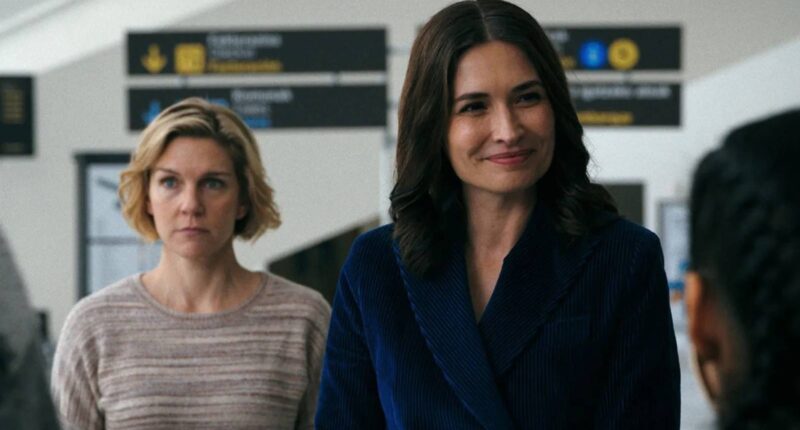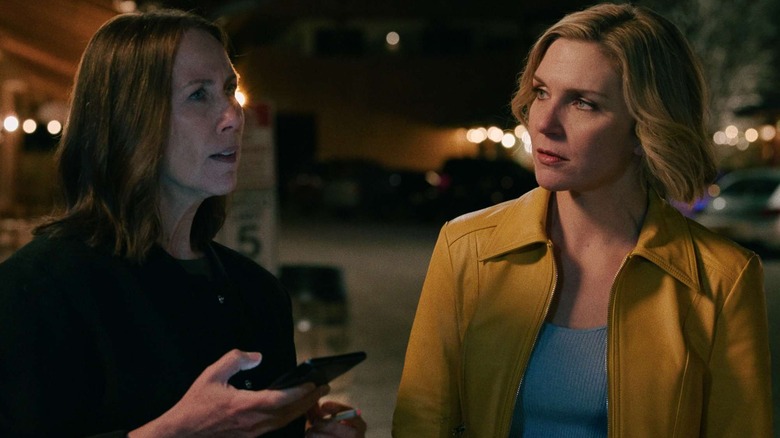Share this @internewscast.com
Captivating audiences with its initial episodes, “Pluribus” has quickly emerged as one of 2025’s standout television series. The show explores the gripping tale of a hive mind that has taken over humanity, leaving only a handful of individuals unaffected, including the ever-cantankerous Carol, played by Rhea Seehorn. Garnering a perfect score of 10/10 in our review, the series invites viewers to speculate on its unfolding narrative and its potential conclusions. While the ultimate ending of “Pluribus” remains a mystery, we have some intriguing theories on how it cannot end, detailed further in our explainer video.
A pivotal clue to rule out certain endings comes from a line in Episode 2, where Carol remarks, “We’ve all seen this movie, and we know it does not end well.” This insight speaks to the show’s creator, Vince Gilligan, known for hits like “Breaking Bad” and “Better Call Saul,” and his knack for subverting audience expectations. It’s reasonable to anticipate that Gilligan will steer clear of conventional conclusions often seen in alien invasion or hive mind narratives, ensuring that “Pluribus” defies standard tropes.
In contrast to classic films like 1956’s “Invasion of the Body Snatchers,” where roadblocks might halt an invasion, “Pluribus” depicts a scenario where the hive mind’s reach is already global. Similarly, unlike 1998’s “The Faculty,” there is no central queen to vanquish, nor can Carol simply annoy the hive mind into retreat, as seen in 2013’s “The World’s End.” For more insights into how “Pluribus” can’t conclude, our video provides an in-depth look.
In a moment of dark humor, Carol questions if the hive mind would provide her with a nuclear bomb upon request. Up till now, it has been surprisingly obliging, once giving her a grenade after a sarcastic comment, implying it might indulge her further. However, Carol’s situation is not one that can be resolved through traditional means of confrontation. The hive mind resides within humanity itself. A previous emotional breakdown by Carol resulted in the deaths of 11 million people, as the hive mind reacted violently to her negativity, leaving her to grapple with the unintended consequences of her actions.
Direct confrontation could lead to widespread loss of life, undermining any efforts to restore humanity. Initially describing itself as a “virus,” the entity shifts to calling itself a “psychic glue,” suggesting that disrupting the extraterrestrial signal might be futile. Even if Carol managed to nuke its source, the transformation seems irreversible. Lacking any special powers and with the hive mind aware of her immunity, Carol cannot simply assimilate.
Has Pluribus already planted the seeds for its ending?
It’s conceivable that even Vince Gilligan hasn’t mapped out the series’ ultimate resolution. He famously improvised with key plot elements in “Breaking Bad,” and he and his team might be navigating “Pluribus” in a similar fashion. Nonetheless, we remain committed to unraveling the mystery alongside Carol, eager to discover how she might ultimately outsmart the hive mind, week after thrilling week.
There’s no way to fight this head-on without killing a bunch of people, which would negate trying to set humanity right in the first place. The entity initially refers to itself as a “virus” before instead calling it a “psychic glue.” One might assume Carol could disrupt the signal that came from outer space, but even if Carol could somehow send a nuke to its origin, the damage is likely already done. Carol doesn’t have special powers at her disposal to stop it, and the hive mind is well aware of her immunity, so she can’t just attempt to blend in.
It’s possible not even Vince Gilligan knows how “Pluribus” will end. After all, he didn’t know what to do with that machine gun during the final season of “Breaking Bad,” so he and his team could be winging this one, too. Regardless, we’ll be there every week to see what clues materialize for how Carol can beat the hive mind.









